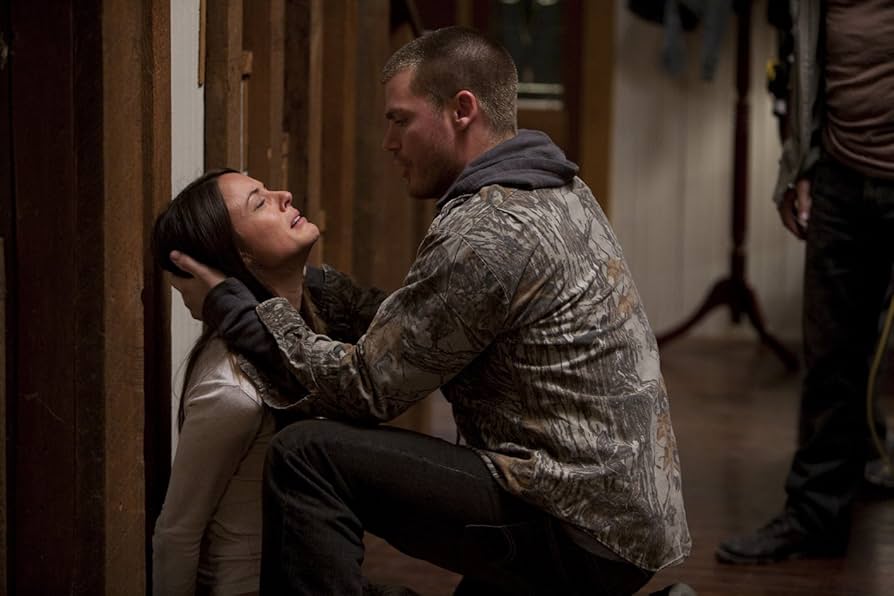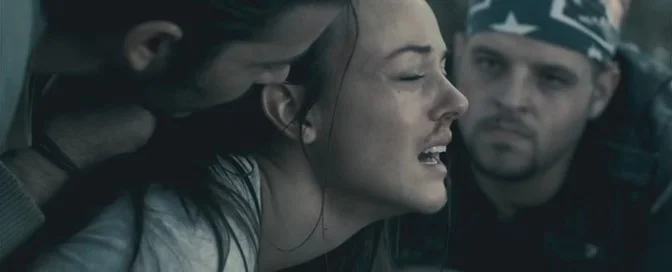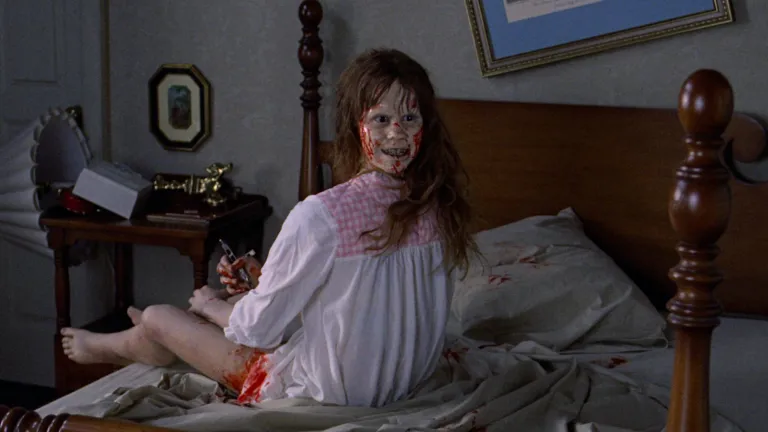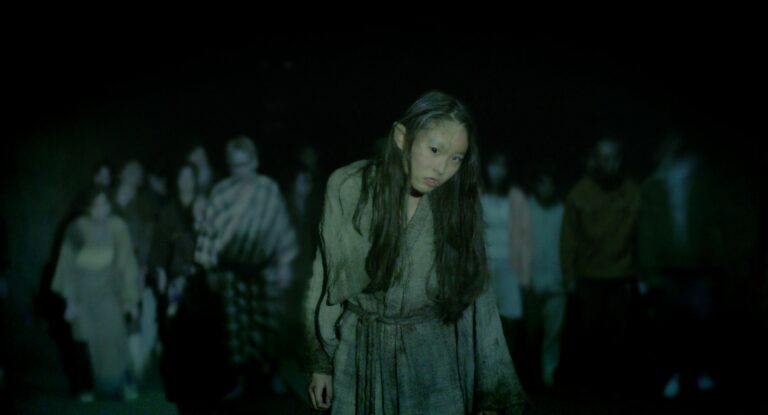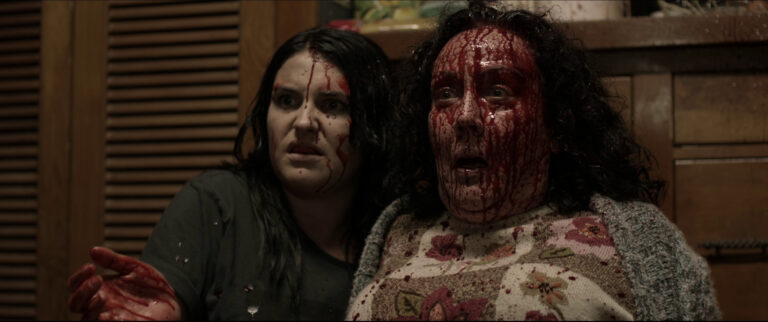Review of I Spit On Your Grave (2010): A Brutal Revenge Thriller
Years ago, I watched I Spit On Your Grave (2010) and was floored. The relentless intensity, from Jennifer Hills’ harrowing ordeal to her savage revenge against her rapists, was gripping, violent, and deeply satisfying. Revisiting it a decade later, I still felt that rush, though I noticed some flaws this time around. Despite these, the film’s raw power and the gut-punch of its depiction of gang rape make it a must-watch, keeping viewers on edge with its unflinching tension.
Plot Summary
Jennifer Hills, a writer from New York, retreats to a remote Louisiana cabin to work on her book. At a gas station, she meets Johnny Stillman and his crew. Asking for directions to her rental, she brushes off Johnny’s flirtations, sparking his resentment as his friends mock him. Settling into the cabin, Jennifer senses she’s being watched—dead birds crash into doors, the shed door is damaged, and unease grows. One night, Johnny and his gang invade her cabin, tormenting her psychologically and physically. She escapes briefly by smashing a bottle and kicking Johnny, but her flight leads her to Sheriff Storch, who’s patrolling nearby.
Storch escorts her back to the cabin, now empty, but finds marijuana and alcohol. Accusing her of being drunk and disorderly, he pins her against a wall, sniffing her menacingly. Johnny’s gang returns, resuming their assault. They force Matthew, one of their own, to rape her, then drag her into the woods for further violation. Broken and disoriented, Jennifer stumbles onto an unstable bridge. Storch aims his gun to silence her permanently, but she falls into the river, vanishing beneath the surface. The gang, unable to find her body, destroys her belongings—clothes, laptop, car—to cover their tracks.
Weeks pass, and strange occurrences haunt the group: a dead bird in a house, Jennifer’s sandal appearing, a missing camcorder. Matthew disappears, the first to be killed. Stanley, Johnny, Andy, and finally Storch follow, each meeting a gruesome end as Jennifer exacts her revenge.
Horror and Intensity
Most horror films I’ve seen lean on supernatural scares—ghosts, zombies, or aliens—but I Spit On Your Grave was my first encounter with a film rooted in rape, violence, and visceral horror. While its frights don’t match classic horror, the suffocating tension, especially during Jennifer’s mental and physical torture, is unbearable. Her escape from Storch’s bullet marks a turning point, easing the strain and shifting the mood to anticipation for her revenge. It’s akin to The Mist, where the death of the manipulative Mrs. Carmody brings relief. Here, Jennifer’s vengeance delivers that same catharsis, replacing dread with grim satisfaction.
Surprisingly, the film lacks traditional dramatic peaks. Instead of high-stakes cat-and-mouse games, it unfolds slowly, emphasizing Jennifer’s trauma and methodical retaliation. This deliberate pace suits the assault’s weight but disappoints viewers expecting a flashy, climactic showdown, as the revenge feels more calculated than explosive.
Expansive Setting
The film’s wide-open setting is a clever choice. Unlike confined horror, the sprawling Louisiana landscape—sparse in population—gives Jennifer room to escape and survive. This vastness, likely intentional, enhances her comeback while amplifying the discomfort of her assault. A tighter setting would’ve suffocated the story further, so the open space balances the brutality with a sense of possibility, making her survival and revenge more plausible.
Soundtrack and Scares
The soundtrack elevates I Spit On Your Grave to another level. Subtle yet suspenseful, it amplifies the dread without overpowering the scenes, perfectly matching the film’s grim tone. Unlike action-packed thrillers, it doesn’t aim for bombast but keeps you on edge, especially during Jennifer’s ordeal.
Notably, the film avoids jump scares, a wise move. Many horror films overuse them, often to their detriment. Here, inserting jump scares amid a gang rape would’ve felt cheap, trivializing Jennifer’s suffering. The focus stays on her perspective, facing five men with no supernatural gimmicks, preserving the story’s raw gravity.
Social Commentary
After watching, the film’s social weight hit me hard. It frames Jennifer’s trauma through her eyes—facing five men, her spirit shattered, her will to live nearly gone as she leaps into the river. Rape’s psychological toll is a real-world crisis, and the film doesn’t shy away. The men’s escalating violence, culminating in an attempt to murder her, defies all moral bounds. Their deaths feel justified, yet spark debate: Jennifer’s camcorder evidence could’ve led to legal justice, but her brutal revenge mirrors their cruelty, dividing critics and viewers over its morality.
Another layer emerges: the ethics of pregnancy from rape. Some argue abortion is justified for unwanted pregnancies; others see the fetus as an innocent victim. The film doesn’t delve into this, but it looms as a contentious issue, impossible to resolve neatly.
Finally, Sheriff Storch’s duality—loving father at home, misogynistic predator to strangers—exposes a chilling hypocrisy. In his final moments, begging for his “innocent” daughter’s sake, Jennifer retorts, “So was I.” This flips the script: perpetrators become victims, pleading and cursing as they fall. It’s unsettling, forcing you to grapple with justice, empathy, and perspective, depending on where you stand.
Weaknesses
One glaring issue is Jennifer’s survival after plunging into the river. Missing for a month before her revenge, she somehow endures in a sparsely populated area. With locals like the cabin’s landlord likely clearing out her belongings, and the gang scouring the area, her ability to hide, find food, and survive strains belief. While this can be overlooked for the sake of her vengeance, it’s a noticeable gap.
The film’s lack of dramatic flair in the revenge phase is its biggest flaw. The slow pacing works during the assault, building tension and debate, but it falters later. Revenge demands suspense, stealth, and chilling payoff, yet the final act feels too subdued, missing the intensity needed to match the buildup. This left me wanting more, preventing the film from reaching true greatness.
The horror also wanes post-assault. The rape scenes are harrowing, but the revenge lacks the same edge. Makeup and torture sequences feel underwhelming, diluting the terror in the latter half.
Final Thoughts
I Spit On Your Grave is a raw, polarizing thriller that doesn’t hold back. Its unflinching look at rape and revenge is both its strength and its controversy, delivering catharsis while sparking ethical debates. The expansive setting and taut soundtrack amplify its impact, but the lack of dramatic payoff and uneven horror keep it from perfection. For those who can stomach its brutality, it’s a tense, thought-provoking ride that lingers long after the credits roll.

